Upcoming Events

Host: Center for Water Research
Date: Tuesday, March 18th, 4:30 PM – 5:30 PM
Location: Hogan Hall, Room 1160 (First Floor)
You’re invited to the inaugural Watering Hole, the Center for Water Research’s new monthly gathering where faculty and students come together to exchange ideas about water-related topics in a relaxed, collaborative atmosphere.
This month, hear from Rob Weinstock, director of Northwestern's Environmental Law Clinic, as he discusses how his team is holding Trump Tower accountable for its unauthorized intake of millions of gallons of water from the Chicago River — a case with significant implications for environmental protection and local ecosystems.

Enabling DOE Regional Energy-Water Demonstrations: Public Information-Gathering Meeting #2
March 3rd, 2025, 8:00 AM – 4:00 PM CT
March 4th, 2025, 8:00 AM – 12:00 PM CT
Join the National Academies for an information-gathering meeting on March 3 and 4, 2025 in Atlanta, Georgia focused on regional energy-water issues in the Southeast and how DOE energy-water demonstrations might enable solutions. We welcome industry, community, agency, and academic stakeholders from across the southeastern U.S.

Chicago Energy Conference
Co-Organizers: Northwestern Energy and Sustainability Club (NESC) and UChicago Energy and Climate Club (ECC)
April 5th, 2025, 7:30 AM – 5 PM
Ida Noyes Hall, 1212 E 59th St, Chicago, IL 60637
The Northwestern Energy and Sustainability Club (NESC) and the UChicago Energy and Climate Club (ECC) are excited to announce the inaugural undergraduate student-run Chicago Energy Conference! Taking place on April 5, 2025, at Ida Noyes Hall, this conference will bring together students, professionals, and industry leaders to explore the theme "Bridging the Gap: Policies, Technologies, and Investments Needed for A New Energy Age."
What to expect:
| • | Keynote Speakers – Featuring industry leaders like Kate Ringness (former Senior Advisor to the Secretary at the DOE). | |
| • | Panel Discussions – Covering crucial topics such as Energy Transition in the Global South, Nuclear Fission and Fusion, Sustainable Urban Design, Grid Reliability, Clean Energy Finance, and more. | |
| • | Networking Opportunities – Connect with clean energy companies at our expo and engage with panelists from the Department of Energy, Illinois Commerce Commission, City of Chicago, California Office of Land Use, RWE, and other leading organizations. |
Tickets are FREE for Northwestern students, staff, and faculty.

Agile BioFoundry Student Workshop
April 10th, 2025
12PM – 2PM CT
Are you a student, postdoc or early-career researcher interested in learning more about working in synthetic biology/biomanufacturing? Join us on April 10, 2025 from 10:00 AM – 12:00 PM PST for our virtual Student Workshop led by early-career researchers in the Agile BioFoundry. You’ll learn more about the Agile BioFoundry, what it’s like to work in synthetic biology/biomanufacturing, and career advancement opportunities.

Environmental Humanities Congress: Indiana Dunes, Calumet Region & The Great Lakes
Host: Indiana University
Dates: June 19 – June 22, 2025
Location: Chesterton, Indiana
Call for Individual Project Abstracts (Due March 3rd)
This Congress will be more than a conventional academic conference with panels and keynotes: For one, the agenda will involved active engagement with local communities, organizations, and activists as a regular feature throughout the long weekend. Non-academics will be included in the panels, run the surrounding events (tours, public fora), and participate in the plenary sessions. In addition, scholars will be encouraged in various ways to focus their thinking on the specific issues that ground environmental health and justice in the Great Lakes. In other words, applied research and case studies focused on the region will be encouraged in various ways. Finally, the venues and events of the meeting will bring attendees in direct contact with the Indiana Dunes in memorable ways. Instead of being just an attractive location for a conference, the region will be the subject matter of the Congress.
This means that the event will understand environment in an encompassing sense — the ways in which its geology, biology, and ecology are thoroughly intertwined and shot through with economics, culture, and politics. The environmental history of the region is one with the histories of First Nation tribes, urban industrialism, and tourism. A main purpose of this event in to bring together multi-disciplinary energies to encourage interdisciplinary dialogues. This feature that is already attracting great attention to the Congress is that it is an unavoidably, genuinely, and elaborately interdisciplinary event. The theme is so fully anchored in the unique material, historical, scientific, political, cultural facets of this specific place on earth; you have historical giants from far distant disciplinary and cultural locations all involved — Carl Sandburg, Jens Jensen, Richard Daley, Henry Cowles, Paul Douglas, Dorothy Buell, Frank Lloyd Wright; you have the active involvement of directly affected communities such as First Nations citizens, the Parks Service, and local environmental organizations; to the original core of environmental philosophy scholars and continental philosophy circles have been added the strong interest of major environmental humanities programs from five states, and major commitments for both undergraduate and graduate participation in the Indiana system; while the event itself is reflecting this diversity of interests in its construction, with an artist-in-residence, a counsel fire ring, talks by parks rangers, Native American elders, and community activists; and a geologic-botanical-limnologic-historical-cultural-architectural bus tour.
Past Events

Designing Water’s Future: Urgent Strategies for a Water Insecure World
Presented by: Circle of Blue, Northwestern Institute for Policy Research and Medill School of Journalism
Date: Wednesday, February 12th, 2025
Water insecurity ranks among the greatest risks to global economic stability, environmental resilience, supply chains, and food and energy security, according to Eurasia Group and the World Economic Forum. By all metrics, we are failing to meet UN Sustainable Development Goal #6: ensuring access to clean water for all.
From wildfires in California to droughts in the Colorado River basin, and urban centers like Mexico City, Bogotá, Tehran, Hyderabad, and Bangalore approaching “Day Zero” scenarios, the world is facing a mounting water crisis. With political instability and escalating environmental pressures, we must ask: What will it take to change our dangerous course for the world’s fresh water?
Join this exclusive virtual discussion, where leaders from finance, development, policy and universities will share groundbreaking insights and key takeaways, including from the January 2025 World Economic Forum Annual Meeting in Davos. Confirmed speakers include Henk Ovink, Renee Lertzman, Justin Worland, Jordan Fabyanske and others. This timely event will provide an overview of the critical water challenges ahead in 2025 and explore the bold actions needed to forge a transformative path for water management.
This conversation will tackle critical questions:
| • | Are we prepared for the tumultuous year ahead? | |
| • | How can we reverse the trajectory of escalating water crises? | |
| • | What must be done to align innovation, finance, and policy to create an “enabling environment” for meaningful action? |
There will be brief presentations by thought leaders, followed by breakout groups with discussants. Please specify which breakout group you'd like to join in the registration form for this event.

Tuesday, January 28th, 3PM to 7PM
Nona Jo’s Café, Walter Athletic Center (2255 Campus Drive, Evanston)
The Center for Water Research and the Center for Engineering Sustainability and Resilience
invite you to participate in the development of a new, university-wide vision for water-related research, education, and impact at Northwestern. To jumpstart this process, we are planning a ”Water Jamboree” on the afternoon of Tuesday, January 28, 2025.
Overall, we aim to further distinguish Northwestern nationally and globally in the space of one of the world’s most pressing challenges, water. To do this, we would like to collect inputs from all faculty and staff with substantive interest in water.
Specifically, the two objectives of the Jamboree are:
- To understand and energize Northwestern’s diverse and interdisciplinary watercommunity, across arts and the humanities, the social and physical sciences,engineering, and beyond.
- Explore opportunities for growth, innovation, and increased collaboration acrossdisciplines, colleges, and campuses.
Participants are asked to provide a brief presentation of their water-related research. Each presenter will have approximately 60 to 90 seconds to talk through their replies, which will be projected to the attendees at the event. Even if you are unable to attend the event, we value your answers to these four questions.
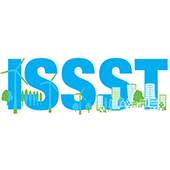
International Symposium on Sustainable Systems & Technology 2024
Location: Baltimore, Maryland
Dates: June 18 – 20th, 2024
Call for Contributions Deadline: January 12th, 2024
In our 31st year, ISSST is one of the longest-running research conferences on sustainability at the intersection of technology, policy, and behavior. We are a vibrant community of engineers, scientists, professionals, and educators, sharing cutting-edge research and collaborations. Our mission is to think beyond the traditional and envision a future where science has no limits.
This year’s conference will highlight the following thematic areas:
|
• |
Agroecology, Industrial Ecology, and the Bioeconomy |
|
• |
Human dimensions of sustainability |
|
• |
Sustainability and resilience of energy systems |
|
• |
Sustainability and resilience of infrastructure systems |
|
• |
Sustainability education |
|
• |
Other creative sustainability-related topics |
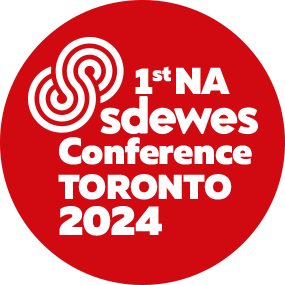
1st North American Sustainable Development of Energy, Water, and Environment Systems (SDEWES)
Dates: June 16th – 20th, 2024
Location: Toronto, Canada
The 1st North American Conference on Sustainable Development of Energy, Water and Environment Systems (SDEWES) is dedicated to the advancement and dissemination of knowledge on methods, policies and technologies for increasing the sustainability of development by de-coupling growth from the use of natural resources and by a transition to a knowledge-based economy. All taking into account the economic, environmental and social pillars of sustainable development.
One of the main issues of the coming decades is to improve efficiencies by integrating various life-supporting systems, using excess from one, as resource in another in the correct moment. Integrating electricity, heating, cooling, transport, water, buildings, waste, wastewater, industry, forestry and agriculture systems will be pivotal towards sustainable development.
Authors willing to present a paper should submit an abstract, up to one page, using web form: https://www.toronto2024.sdewes.org/call-for-papers. These abstracts will then be reviewed by the International Scientific Committee. The full papers will be directly submitted via electronic submission system.
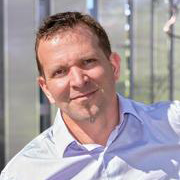
Resourcing minerals fordecarbonisation: Research at the University of Queensland
Speaker: Steven Micklethwaite, Program Leader, Resourcing Decarbonisation Program and Associate Professor, Sustainable Minerals Institute, University of Queensland
Date: March 12th, 2024
Hosts: CESR, Buffett Institute for Global Affairs, Paula M. Trienens Institute for Sustainability and Energy
Steven Micklethwaite is Program Lead for the cross-centre, transdisciplinary Resourcing Decarbonisation Program, addressing the minerals industry's role in a sustainable futuresource. We are examining the supply chain risks, policy frameworks, governance, businessreadiness and decarbonisation technologies particularly associated with the critical metalsrequired for Australia's net-zero commitments. Steven has expertise in the application ofgeoscience and innovative technologies across the mining value chain. Selected projectsinclude developing a digital twin of Queensland’s minerals geoscience data, drone sensingand mapping infrastructure, 3D geological interpretation and visualisation and the application of seismic to the minerals industry. Overall, the Resourcing Decarbonization Program aims toanswer fundamental economic research questions and rethink options to address supplyissues and identify the nature of the emerging supply gap and what innovation can be used toresponsibly address it. The goal is to unlock responsible energy transition mineral supply in amanner that respects ecosystem, reduces energy intensity and delivers against the non-financial values implicit in rising expectations of performance in environmental, social and government (ESG) issues.

Faculty Conversations on Sustainability and Decarbonization Activities
McCormick is convening a set of visioning faculty conversations on Sustainability and Decarbonization to continue our work to define how McCormick will align to support University Priority initiatives. In February and March, we will host four sessions. Three, based on preliminary brainstorming conversations, will be on the topics below. One will be an open discussion guided by additional topics faculty raise through completing this survey. Please see descriptions below and register for the topics that align with your current or future research interests. Please complete the survey and provide your thoughts on additional topics whether they fit within the three areas below or an entirely different area. To help us plan, we appreciate survey responses provided prior to February 2nd.
Sessions
Sustainable Materials and Manufacturing
- Friday, February 9th, 3:00 - 5:00 PM, Cohen Commons
Automated Robotics for Sustainability
- Friday, February 16th, 2:00 - 3:30 PM, Ryan Auditorium (L165)
Sustainability Topics that Emerge
- Friday, February 16th, 3:30 - 5:00 PM, Cohen Commons
Reception
- Friday, February 16th, 5:00 - 6:00 PM, Cohen Commons
Sustainable Water Systems
- Friday, March 1st, 12:30 - 2:00 PM, Ford 1.350 (ITW Classroom)

100 Years Back, 100 Years Forward: Sovereignty, Community and Indigenous Futures
Hosts: CNAIR and Pritzker School of Law
Date and Time: January 25th and 26th, 2024
This 1.5 day convening is entitled “100 Years Back, 100 Years Forward: Sovereignty, Community, and Indigenous Futures'' and is intended to reflect on the last 100 years since the passing of the 1924 Indian Citizenship Act and its impact on the sovereignty of tribal nations. But more importantly it is to invite thought and imagination of Indigenous futures moving forward. This event is part of CNAIR’s ten-year plan to create collective engagement with the many layers and dynamics that are implicated both by the historical conditions that have created the present and what is critical in exercising self-determination over the next 100 years.
This convening is presented by a partnership between CNAIR and Pritzker School of Law, cosponsored by Kaplan Institute for Humanities, Buffet Institute for Global Affairs, Institute for Policy Research, Office of Institutional Diversity and Inclusion, and the Native American Law Students Association.

IIN Symposium
Date: November 2nd, 2023
Since 2001, the IIN Symposium has been one of the world’s premier events for students, researchers, and others interested in the latest advances in nanotechnology.
On Thursday, Nov. 2, we look forward to again hosting leaders in the field of nanoscience and technology as they discuss their latest groundbreaking advances.
The winners of the 2023 Kabiller Prize in Nanoscience and Nanomedicine, Kabiller Young Investigator Award, Kabiller Rising Star Award, and other top scholars will present their work.
Speakers:
| • | Alán Aspuru-Guzik, University of Toronto |
| • | Gang Chen, MIT |
| • | Viola Vogel, ETH Zurich |
| • | Feng Zheng, MIT |
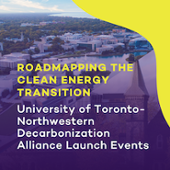
Roadmapping the Clean Energy Transition
Host: Buffett Institute for Global Affairs and Trienens Institute for Sustainability and Energy
Date: October 2nd and 3rd, 2023
The Northwestern Roberta Buffett Institute for Global Affairs and Northwestern Paula M. Trienens Institute for Sustainability and Energy invite you to join us for a series of keynote presentations from leading faculty at Northwestern University and the University of Toronto. These events will mark the launch of the University of Toronto-Northwestern Decarbonization Alliance, an innovation hub that aims to catalyze research and dialogue on progressive decarbonization—efforts to reduce and ultimately eliminate carbon dioxide emissions from energy generation to prevent further global warming.
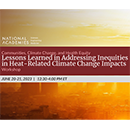
Workshop on Communities, Climate Change, and Health Equity – Lessons Learned in Addressing Inequities in Heat-Related Climate Change Impacts
Host: National Academy of Sciences
June 20th – 21st, 2023
Please join us June 20-21, 2023, from 12:30-4:00 PM ET for a hybrid (both online and in-person) workshop identifying key actions to prevent and mitigate the inequitable health risks from one of climate change's most pervasive, critical aspects–extreme heat.
This multiday hybrid workshop will convene people with lived experience, environmental health, economic, and racial justice experts, climate scientists, energy specialists, and individuals who work on sustainable planning and disaster relief. Together, they will explore a diverse set of real-world challenges affecting different communities and the innovative actions being pursued to prevent, adapt to, or mitigate the health consequences of extreme heat.
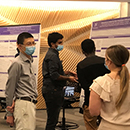
CESR'S Annual Poster Session for Research in Sustainability and Resilience
Tuesday, June 6th, 2023
CESR Seed Grant winners:
Join our showcase of sustainability and resilience research at McCormick and around the university! Representatives from our second and third round Seed Grant project teams will be present to share their work with the CESR community, with the first and fourth round teams invited to present as well. Students and postdocs working on Seed Grant projects are eligible to represent their research teams at the event. This is a great time to catch up on your colleagues' newest breakthroughs and find common connections.
Everyone can submit a presentation:
Participation is not limited to Seed Grant teams, and we invite all PhD students and faculty working in sustainability to join as presenters or attendees.
PhD students: Three Minute Thesis Competition:
New this year, we will host a Three Minute Thesis video competition for Ph.D. students. If you (or your Ph.D. student) are trying to polish your presentation skills, or just have a flair for engaging an audience, start your script today!
Full details on the event can be found under the Three Minute Thesis subheading on our event page. Please feel free to share with your research groups, collaborators, and departments. Reach out to us at engineeringsustainability@northwestern.edu with any questions.
Applications for the Three Minute Thesis competition are now closed. Be sure to stop by the poster session to see all our entries.

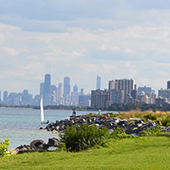
Kick-off discussion: Sustainability and resilience collaborations between McCormick and Feinberg
June 5th, 2023
On June 5 at 1 PM, please join us for a one-hour conference call with Radiology faculty with deep interests in advancing sustainable medicine.
Marlee Crews: Resident, Northwestern Memorial Hospital Radiology.
Tarek Hijaz: Physician, Department of Radiology and Member of the American College of Radiology's Task Force on Environmental Sustainability and Climate Change and the Association of University Radiologists' Sustainability Committee
Drs. Crews and Hijaz have a strong interest in sustainability and climate change and want to advance efforts to tackling these issues at NMH and in the larger NM Health System.
We note that the Inflation Reduction Act has several provisions with incentives for decarbonization/electrification which we may be able to pursue or use to motivate research projects.
Please register here: https://forms.office.com/r/aZeKqqHJqf
Note the registration form requests a 2-5 sentence description of your research area that we’ll provide to Drs. Crews and Hijaz prior to June 5.
We have interest from other areas of Feinberg in sustainability. This is likely to be the first of many conversations. We look forward to building interactions between McCormick and the medical school to advance sustainable medicine.

Sustainability Career Panel
Learn about sustainability-related career paths from NU alums and a current NU Post-Doc who started with engineering degrees. This event is aimed at current students at all stages of their academic careers, and features speakers from a variety of engineering and professional disciplines:
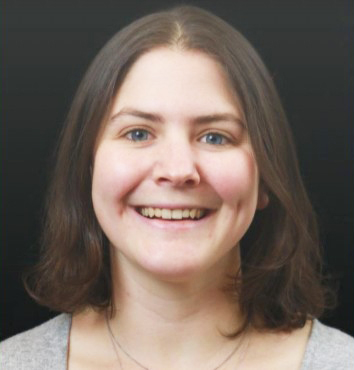
Ryan Albelda
Sustainability Business Intelligence Engineer, Amazon
BS, Industrial Engineering and Management Sciences; Environmental Science
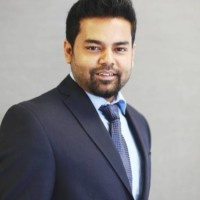 Abhik Bera
Abhik Bera
Microgrid Solutions Architect, Schneider Electric
Master of Engineering Management
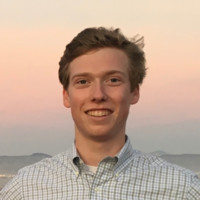 Peter Hosbein
Peter Hosbein
Materials Engineer, Tesla
BS, Materials Science and Engineering
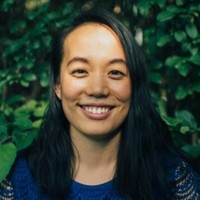 Wenny Noha
Wenny Noha
R&D Senior Manager Water Sustainability, PepsiCo
BS, Chemical and Biological Engineering
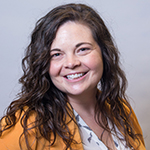
Cat Majors
NRSA Postdoctoral Scholar, Northwestern University (Tyo Research Group)
PhD: Rice University, Bioengineering
BE: Vanderbilt University, BME
 Thomas Yu
Thomas Yu
Product Development Lead, UniverCell Holding GmbH
BS, PhD, Materials Science and Engineering

Speaker: Haotian Wang
Date: Thursday, April 6th, 9:30 AM – 10:45 AM
Location: Tech Institute LR4
The Chemical and Biological Engineering Department is pleased to present a seminar by Haotian Wang from Rice University as part of our ChBE Seminar Series.
Electrochemical conversion of atmospheric molecules (CO2, O2, H2O, N2) into fuels and chemicals represents a green and alternative route compared to traditional manufacturing approaches. However, its practice is currently challenged at two systematic levels: the lack of active, selective, and stable electrocatalysts for efficient and reliable chemical bond transformations, and the lack of novel catalytic reactors for practical reaction rates and efficient product separation. In this talk, using CO2 reduction to gas and liquid products and O2 reduction to hydrogen peroxide as representative reactions, I will introduce the rational design of both catalytic materials and reactors towards practical electrochemical manufacturing of fuels and chemicals
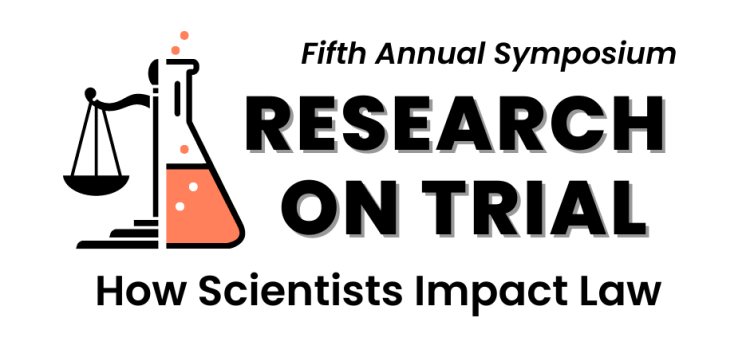
Fifth Annual SPOT Symposium: Research on Trial
Friday, April 7th, 2023
9:30 AM - 4:00 PM
Norris University Center or Online
SPOT is pleased to announce our 5th annual SPOT SciPol Symposium! This year's theme is Research on Trial: How Scientists Impact Law.
As science, law, and ethics become ever more entangled, building relationships with our lawyers and legislators is increasingly critical for implementing science-based policies. This year's keynote and panel will be in-person and hybrid, and our two in-person workshops will be in the afternoon. The symposium will take place on Friday, April 7th, 9:30 am - 4:00 pm CST at the Norris University Center (Evanston Campus), and an evening reception from 4-6 pm CST will follow at Five & Dime in Downtown Evanston. The virtual keynote and panel options will be held over Zoom. Breakfast, lunch, and reception will be provided!

Speaker: Shahrzad Roshankhah, University of Utah
March 12th, 2023
Abstract:
The analysis and optimum design of important civil, energy, and environmental geo-systems, such as unconventional geothermal and fossil energy reservoirs, energy and waste (H2 and CO2) geo-storage facilities, natural and man-made slopes, and tunnels often require understanding geomaterials’ multi-scale behavior under coupled hydraulic, thermal, chemical, and mechanical excitations. I am interested in understanding the coupled physical processes responsible for the overall response of geosystems. Specifically, I investigate the role of micro-and-mesoscale characteristics of the solid skeleton, such as the natural fracture patterns in the rock mass, and their evolution when interacting with the boundary conditions and imposed excitations. In this talk, I will present a series of laboratory experimental studies designed to understand the behavior of hydraulic fractures in a rock mass and their interactions with the rock’s pre-existing natural fractures using state-of-the-art imaging techniques. I will also present a series of hybrid numerical simulations to examine the coupled hydro-seismo-mechanical response of naturally fractured rocks subject to high-pressure fluid injection with respect to the rock matrix permeability and physical characteristics of the natural fractures. I use this versatile simulation technique to also study the whole spectrum of a jointed rock slope from pre-failure deformations leading to progressive failure mechanism and final collapse state.

EES Seminar Series: Data-driven sparse sensing and modeling of ecohydrological systems
Speaker: Anthony Parolari, Marquette University
Host: Civil and Environmental Engineering Department
March 3rd, 2023
Abstract:
In this data-rich era, hydrologists and other environmental scientists are motivated to measure and model everything, everywhere. Yet, limited time, budgets, and technology constrain the number of variables and resolution that can be measured and modeled; and, furthermore, not all variables and spatiotemporal scales in a system provide useful information. Therefore, broad questions in environmental systems modeling include: What variables, times, and locations are most informative of the relevant processes? And what is the minimum sampling required to achieve robust measurement and modeling? To address these questions, in this talk, I will discuss the application of data-driven, sparse sensing and modeling methods in ecohydrology. As a first example, we analyze high-frequency (sub-hourly) soil moisture, temperature, and biogeochemical data in the Fourier domain to model the sensitivity of soil respiration to hydroclimatic variability. This method allows us to develop a process-based model that captures variability across timescales in addition to long-term mean values. Secondly, we show that, generally, environmental signals are “sparse” in the Fourier domain and this sparsity can be leveraged to reduce temporal sampling requirements orders of magnitude below current state-of-the-practice. Finally, we move beyond the Fourier basis and develop sampling bases tailored to hydrological variables, such as streamflow. This method is applied to predict streamflow in ungauged or poorly gauged basins. Further development and application of these methods promises to improve ecohydrological systems sensing and modeling by reducing sample requirements and identifying a minimal set of variables essential to complete characterization of the dynamics.

Host: EES Seminar Series
February 24th, 2023
Abstract:
Climate change is leading to more extreme precipitation events in the Midwest, which require new ways of managing stormwater, particularly in urban areas. Green infrastructure has become an increasingly popular way of providing additional stormwater storage, as well as supporting urban biodiversity. However, many questions on the performance of green infrastructure still remain. Understanding the impact of the type, scale, and quality of green infrastructure on flood reduction is critical to designing green spaces that will help address the challenge of urban stormwater management.
During this seminar, I will present preliminary results from the monitoring of three green infrastructure projects in the Chicagoland region: Indian Boundary Prairies, the Garfield Park Eco-Orchard, and Cultivate Collective at the Academy for Global Citizenship. Our research at Indian Boundary Prairies investigates the resilience of these ecological systems to inputs of urban runoff. At the Garfield Park Eco-Orchard, we explore how green infrastructure can reduce the burden placed on the drainage system. Cultivate Collective at the Academy for Global Citizenship is an example of using social science and engineering methods to quantify the community benefits of green infrastructure. Developing a better understanding of how these systems perform under various conditions can inform the design and maintenance of future green infrastructure projects, which will be critical to manage increased stormwater due to climate change.

Host: EES Seminar Series
February 17th, 2023
Abstract:
The Chicago region has a long history of flooding issues and major stormwater infrastructure projects aimed at combating this. Markham, a small suburb south of Chicago, has experienced severe and frequent flooding in recent years. Markham is home to the Indian Boundary Prairies (IBPs), five high-quality remnant prairie wetlands. This study focused on flooding issues in the Bel Aire neighborhood, a residential community in Markham directly bordering Gensburg Markham Prairie (GMP), one of the five IBPs. This study aims to (1) understand the root causes of flooding in the Bel Aire neighborhood by analyzing local and regional landscape features, (2) determine the quantity and extent of flooding via hydrologic & hydraulic modeling, and (3) design conceptual green infrastructure solutions that aim to mitigate flooding and establish connections between the community and the adjacent IBPs. The analysis of the Bel Aire neighborhood’s landscape focused on the progression of local and regional geomorphology, hydrology, vegetation, infrastructure, and precipitation trends. Hydrologic & hydraulic modeling utilized HEC-HMS and HEC-RAS to simulate the floodplain under three design storms. The results of this modeling served as inputs for the performance-based design of green infrastructure systems within the hydraulic model. This work provides a proof-of-concept foundation for the detailed design of stormwater infrastructure in Markham and establishes a framework for green infrastructure-driven flood mitigation solutions for communities throughout the Chicago region.

Mining the Climate Crisis Webinar Series
Host: Minnesota Center for Environmental Advocacy
Date: January 24, 2023
Join us for a roundtable-style webinar with panelists who will discuss their visions for a clean energy future, particularly in the context of increasing pressure to accept the myth that sulfide mining is the only viable means to source the "critical minerals" used for renewable energy. Creative, big-picture solutions are needed to measure up to the challenges posed by climate change – panelists will share their insights into how we can meet the moment.

Catalysis Seminar: "Synthesis, catalysis, and electrochemistry for reaction discovery and energy storage"
Speaker: Christian Malapit
Host: Center for Catalysis and Surface Science
Friday, December 9th, 12:00 PM
Ryan Hall, Room 4003 or via Zoom
Organic synthesis and reaction discovery are key drivers in drug development and in the advancement of energy systems. This presentation will provide an overview of the projects being done in the Malapit lab. The first part of the talk will highlight how catalysis and electrochemistry are utilized to develop innovative and selective organic transformations. These novel reactions take advantage of the abundance and unique reactivities of organoboron reagents and aromatic C–H bonds to undergo electrochemical functionalization. The second part of the talk will focus on how we apply concepts of organic synthesis and electrochemistry towards the development of next-generation redox molecules in flow batteries. Redox flow batteries (RFBs) integrate renewable energy sources into grid-scale electricity production because their configuration enables decoupling of power and capacity. Non-aqueous RFBs offer the possibility of accessing higher energy densities than their aqueous analogues. The discovery and development of two types of organic-based redox active molecules that possess extreme redox potentials and their ability for multi-redox process will be discussed.
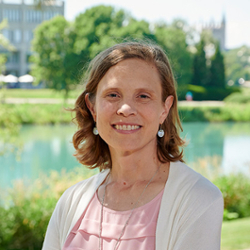
Center for Catalysis and Surface Science Seminar- Life Cycle Assessment: Methodology Development and Application Towards Addressing Energy, Water, and Materials Challenges
Speaker: Jennifer Dunn
Friday, November 11th, 12:00 – 1:00 PM
Ryan Hall, 4003
Abstract: Life cycle assessment (LCA) can guide technology and policy developers towards solutions that move society towards sustainability in the interconnected spheres of energy, materials, and water. Most of these transitions have potential pitfalls that LCA can help us anticipate and possibly mitigate. This seminar will address three examples of our group’s development and application of LCA methods towards sustainable societal transitions.
The first addresses the role of biofuels as complementary to electrification in the transportation sector. How can we use biofuels to a greater extent without incurring substantial land use change greenhouse gas emissions that might negate their benefit? Our work in this area encompasses a scenario analysis of biofuel deployment towards hard-to-decarbonize transportation modes and development of machine learning algorithms to detect land use change in high resolution imagery. The second addresses the role of critical minerals in energy storage materials. What is life cycle assessment missing in addressing the social and environmental effects of these minerals and how can it improve? The final example addresses approaches to reducing energy consumed in wastewater treatment while recovering important nutrients (nitrogen, phosphorous) that it contains. How do we know that these technologies will move the needle on energy consumption and greenhouse gas emissions in the water sector? Taken together, these examples highlight the potential of life cycle assessment but also some of its weaknesses and needs for further development.
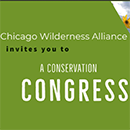
Chicago Wilderness Congress 2022
Thursday, November 3rd, 2022, 1:00 – 5:00 PM, with reception following
UIC Forum Pavilion, 725 W. Roosevelt Rd, Chicago, IL
It's time to bring together people from Illinois, Indiana, Michigan, and Wisconsin to celebrate conservation in all its forms, and collaborate to address our shared challenges.
No matter your role or your organization, YOUR participation is critical at the Chicago Wilderness Congress. Come ready to talk and listen, and re-energize your passion for conservation!
Congress highlights include:
| • | Keynote Address from Debra Shore, Regional Administrator for U.S. Environmental Protection Agency Region 5 | ||||||||
| • | Panels and facilitated conversations on
|
||||||||
| • | Networking reception |
Tickets are $25 per person and include all events plus snacks and drinks. Scholarships are available. Public transportation is easily accessible and there is ample parking nearby.
The Chicago Wilderness Alliance is a regional collaboration of more than 250 partner organizations who offer diverse voices and perspectives and work toward a common vision: creating and protecting a vibrant, accessible region where people and nature thrive. Learn more at ChicagoWilderness.org.
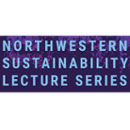
Northwestern Sustainability Lecture Series
October 31st, 2022
Louis Room, Norris University Center, Northwestern University
The Northwestern Sustainability Lecture Series is a 1-day summit at Northwestern University wherein world-renowned experts discuss “Earth-Human Interactions: Sustainability and Development.” In this event, six Northwestern Sustainability Lecturers are selected to talk about critical challenges and advances related to energy, climate and the environment, and urban transformations, as well as to be recognized for their prominent contributions in these fields. The summit addresses the analysis of questions, problems and solutions that result from human interactions with the Earth both above and below the surface, while aiming at expanding the educational and cultural experience of a large audience. Conceptually developed for the undergraduate and graduate students of Northwestern, this event also targets its faculty members, and aims at involving the industry, other stakeholders, and the general public. Conceived within the Department of Civil and Environmental Engineering of the McCormick School of Engineering and Applied Science at Northwestern University, this event is sponsored by The Alumnae of Northwestern University, the Center for Engineering Sustainability and Resilience, and the Institute for Sustainability and Energy at Northwestern. The ultimate goal of this summit is to inform and inspire present and future leaders while recognizing excellence across the fields of applied sciences and engineering, physical sciences, social sciences and architecture. This event will be delivered in a hybrid form and is open to the public.
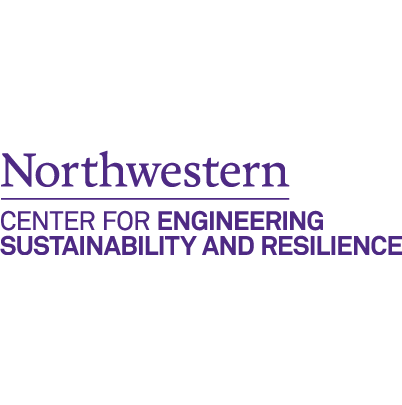
Office Hours for CESR Strategic Planning Input
October 10th-13th, 2022
CESR Director Jennifer Dunn would like to invite CESR affiliates and other McCormick faculty member, to join her for drop-in Office Hours October 10-13 from 9 to 10:30 in her office, E248, during which light refreshments will be available. No appointment necessary, just drop in! Please feel free to stop by and share your thoughts on how CESR can support your research, teaching, and leadership in engineering sustainability and resilience. We also welcome suggestions pertaining to our work with graduate and undergraduate students with whom we’ll hold a separate consultation. We will be using this input to inform a strategic plan which we will vet with our Advisory Board and McCormick Leadership before releasing. Providing suggestions by email by Oct 13 is also welcome. Please include mcccenters@northwestern.edu in copy.
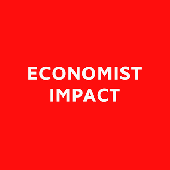
Sustainability Week: Countdown to COP27 Host: Economic Impact
October 3rd –6th, 2022
In an evolving world, humanity needs to adapt to thrive. After the COP26 conference on combating climate change, we now have eight short years to meet some of the most ambitious collaborative goals in history, with many countries and organizations aiming to halve their greenhouse-gas emissions by 2030. But how solid were the promises made at COP26? How can companies ensure they deliver on them and prepare for more commitments at COP27? When an ever-widening pool of standards and regulations is being developed, which ones should you follow? And how should you start getting ready to adapt your business in case climate targets are not met?
Over four days, you can experience around 65 sessions, 150 speakers and more than 8,000 virtual and 5,000 in-person attendees. Sustainability Week: Countdown to COP27 will gather experts to provide practical ideas to help you move faster and prepare for COP27 with a packed agenda including panels, interviews, networking and closed roundtables.
View the event website for the latest speaker list and agenda.

STEMtember Sessions: Careers in Clean Energy
Thursdays in September 2022
Online
This September, join the U.S. Department of Energy’s Office of Energy Efficiency and Renewable Energy (EERE) for a weekly virtual career fair, the STEMtember Sessions: Careers in Clean Energy. These are networking opportunities during which EERE team members will discuss their diverse roles in renewable power, sustainable transportation, energy efficiency, and business operations.
You do not need a degree in science, technology, engineering, or math (STEM) to work in clean energy, so come with questions and get ready to learn about how you can help build a clean energy future as a Clean Energy Champion. Register today:
| • | Sept. 8, 12–2 p.m. ET – Careers in EERE: Sustainable Transportation |
| • | Sept. 15, 12–2 p.m. ET – Careers in EERE: Renewable Power |
| • | Sept. 22, 1–3 p.m. ET – Careers in EERE: Energy Efficiency |
| • | Sept. 29, 12–2 p.m. ET – Careers in EERE: Business Operations |

ACS: Sustainability in a Changing World
August 21st through 25th, 2022
Chicago, IL and Online
With over 11,000 oral and poster technical presentations, ACS Fall 2022 promises to have something for every chemist! Access cutting-edge research while sharing your work with colleagues from across the globe. In-person and hybrid attendance options are available.

Life Cycle Assessment Workshop
August 9th - 11th, 2022
Evanston, IL
The Center for Engineering Sustainability and Resilience (CESR) hosted a three-day workshop on Life Cycle Assessment in August 2022. The event brought together graduate students and early career researchers from 15 institutions, providing the foundation needed to apply life cycle assessment as part of their ongoing research.

NSF Convergence Accelerator Expo
July 27th and 28th, 2022
Virtual
A virtual exhibition event was hosted by the NSF Convergence Accelerator on July 27-28, 2022. The event provided opportunities to connect with NSF-funded Convergence Accelerator research teams, view live presentations and demos, and network with other researchers. Learn more about the event here.
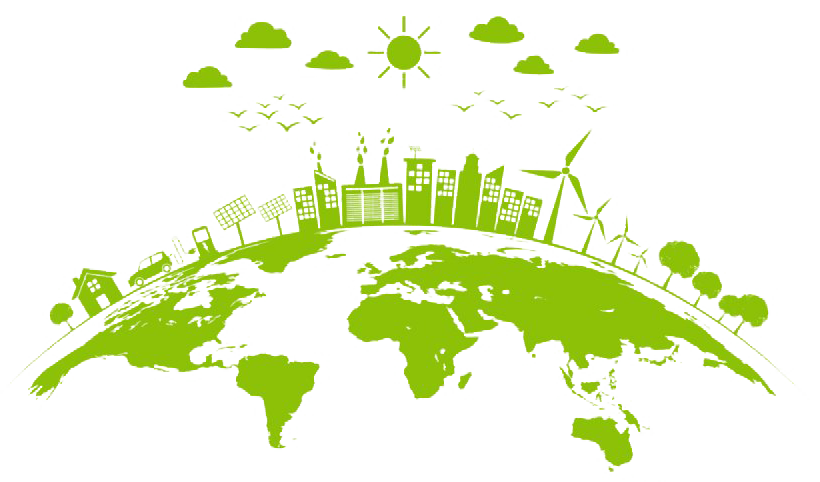
CESR Poster Session
May 17, 2022 | 3:00PM – 5:00PM
RECEPTION 5:00 - 6:00PM
HIVE 2350, FORD CENTER
CESR invites you to its inaugural poster session
The Center for Engineering Sustainability and Resilience has seeded three rounds of interdisciplinary collaborations, enabling new partnerships in innovative and high-risk projects to develop preliminary data for more established funding opportunities and to promote complementary research teams in areas of sustainability.
Supported by funding from Leslie and Mac McQuown, thirteen teams of faculty members have been awarded $60,000 each to support 18-month collaborative research projects. Read about the teams and their projects here.
Join us as they present their research
Present a poster
Open call to share your work in topics related to CESR research areas
In addition to seeing the work of CESR’s seed grant winning teams, please consider sharing your research, to network and find potential collaborators
Topics may include but are not limited to:
Sustainable manufacturing, processes, and materials
Sustainable and resilient cities
Sustainable water systems and reuse
Climate change mitigation and adaptation
Sustainable and resilient infrastructure
Nature-based solutions
Process and systems analysis
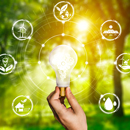
CESR Symposium 2021: Technology, Policy, and Individual Actions: Three approaches to address climate change
October 29, 2021 | 9:05AM – 3:05PM CDT
Advances in technology alone will not be sufficient to successfully overcome the challenges posed by climate change. A major objective of this symposium is to help engineering researchers place their energy- and climate-related research in the context of other drivers of change such as policy and business considerations, as well as provide updates on the latest in technology development for addressing climate change.
This symposium will be remote. The keynote speaker and panelists will be in-person with one another on the Evanston campus, and their presentations and conversations will be streamed to our participants. We will also invite you to participate in a Q&A during each session. A Zoom link will be provided via email to registrants.
Speaker
| • | Karen Weigert, Executive Vice President, Slipstream; Sustainability Contributor for Reset, WBEZ Chicago |
Moderators
| • | Jeff Richards, Assistant Professor of Chemical and Biological Engineering, Northwestern University |
| • | Amgad Elgowainy, Senior Scientist, Argonne National Laboratory |
| • | Kim Suiseeya, Assistant Professor; Environmental Policy and Culture Program; Faculty Affiliate at the Center for Native American and Indigenous Research, Northwestern University |
| • | Melissa Rosenzweig, Assistant Professor of Instruction in Anthropology and Environmental Policy and Culture, Northwestern University, Indigenous Environmental Institute, Trent University |
| • | Megan Kashner, Clinical Assistant Professor within Kellogg's Public-Private Interface Initiative (KPPI); Director of Social Impact, Kellogg School of Management, Northwestern University |
| • | Meghan Busse, Associate Professor of Strategy, Kellogg School of Management, Northwestern University |
| • | Jennifer Dunn, Associate Professor of Chemical and Biological Engineering; Associate Director, Northwestern Argonne Institute of Science and Engineering; Associate Director, Center for Engineering Sustainability and Resilience |
| • | William Miller, Professor of Chemical and Biological Engineering; Director, Center for Engineering Sustainability and Resilience |
Panelists
| • | Angelina Galiteva, Founder and Board President at Renewables 100 Policy Institute, Chair of the California Independent System Operator |
| • | Hossein Ghezel-Ayagh, Vice President of Advanced Technology Programs, FuelCell Energy Inc |
| • | Hannah Friedman, Investment Associate, Closed Loop Partners |
| • | Erin Newman, Environmental Scientist, U.S. Environmental Protection Agency, Region 5 |
| • | Dany Robles, City Energy Policy Coordinator, Illinois Environmental Council |
| • | Victoria Zimmerman, Director of ESG & Sustainability Strategy Alignment, McDonald's |
| • | Dan Nielsen, Impact and Sustainable Finance Expert |
| • | James Margolis, Senior Partner, ERM, Environmental, Safety and Sustainability Management Consulting |
| • | Cristina Negri, Division Director, Environmental Science (EVS), Argonne National Laboratory |
| • | Klaus Weber, Thomas G. Ayers Chair in Energy Resource Management; Professor of Management & Organizations, Kellogg School of Management, Northwestern University |
| • | Tyler Barron, Policy Advocate, Environmental Law and Policy Center |
Co-sponsored by:
The Center for Engineering Sustainability and Resilience (CESR)
The Institute for Sustainability and Engineering at Northwestern (ISEN).
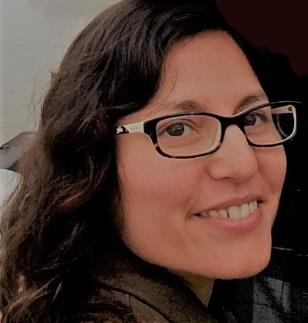
Dr. Dominique David-Chavez
Enhancing Climate Science & Environmental Justice Efforts Through Indigenous Research Governance
Tuesday, May 25th
The Program in Environmental Policy & Culture invites Dr. Dominique David-Chavez:
Arawak Taino
Post Doctoral Indigenous Data Sovereignty Fellow, Native Nations Institute, University of Arizona
Post Doctoral Research Fellow, Forest and Rangeland Stewardship Dept., Colorado State University & National Science Foundation
Co-Sponsored By:
CENTER FOR NATIVE AMERICAN AND INDIGENOUS RESEARCH
PROGRAM IN ENVIRONMENTAL SCIENCES
CENTER FOR ENGINEERING SUSTAINABILITY & RESILIENCE
BUFFETT INSTITUTE FOR GLOBAL AFFAIRS: DISPROPORTIONATE IMPACTS OF ENVIRONMENTAL CHANGE WORKING GROUP
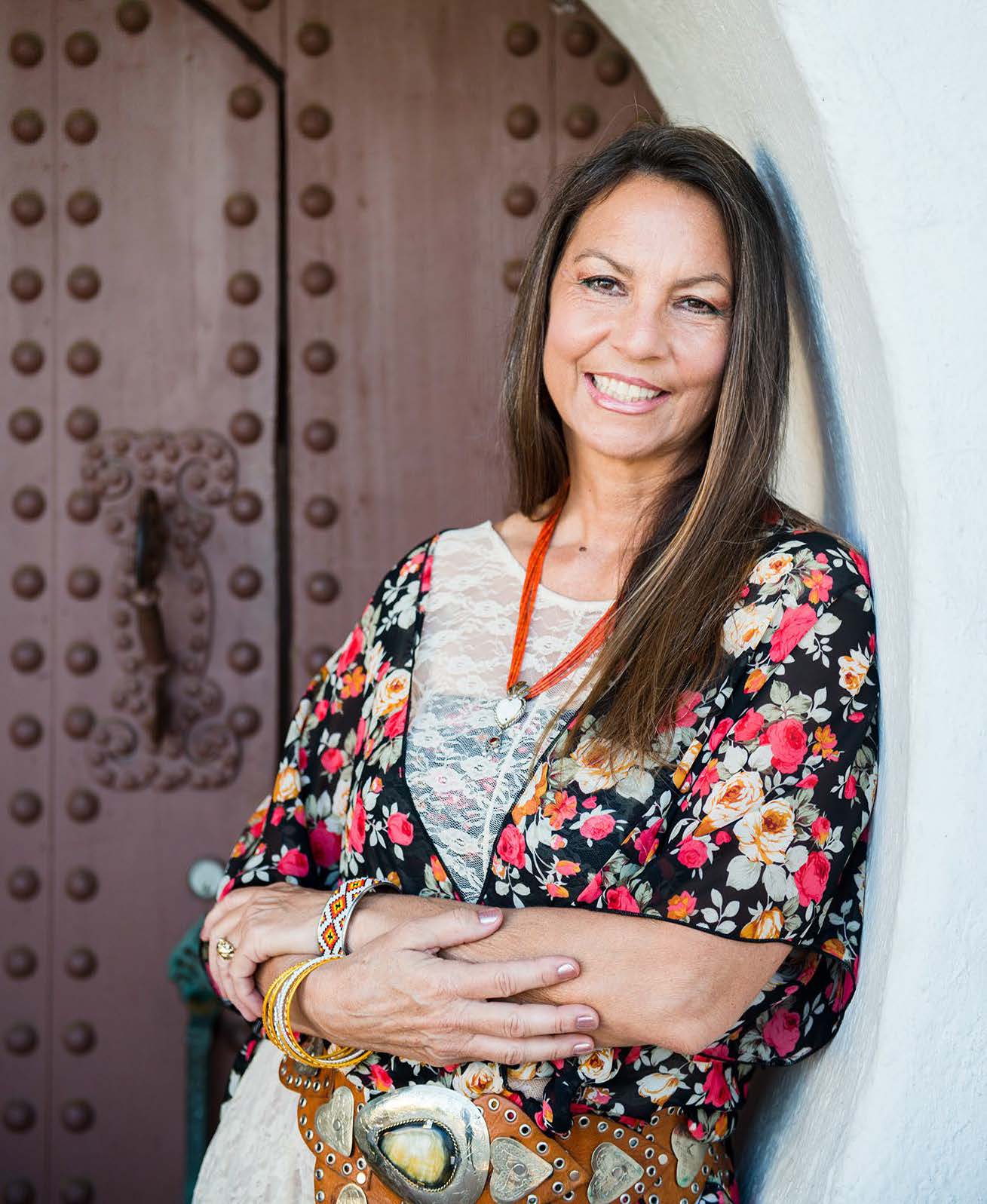
Dina Gilio-Whitaker
Indigenizing and Decolonizing Environmental Justice
Tuesday, May 18, 2021, 3PM CST
Weinberg College of Arts & Sciences Program in Environmental Policy & Culture presents Indigenizing and Decolonizing Environmental Justice with indigenous author and activist Dina Gilio-Whitaker.
Co-Sponsored By:
DEPARTMENT OF RELIGIOUS STUDIES
INSTITUTE FOR POLICY RESEARCH
PROGRAM IN GLOBAL HEALTH STUDIES
DEPARTMENT OF ANTHROPOLOGY
MEDILL SCHOOL OF JOURNALISM
PROGRAM IN AMERICAN STUDIES
INSTITUTE FOR SUSTAINABILITY & ENERGY
CENTER FOR RACE & ETHNIC STUDIES
PROGRAM IN ENVIRONMENTAL SCIENCES
CENTER FOR ENGINEERING SUSTAINABILITY & RESILIENCE
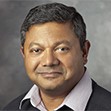
Arun Majumdar
Energy, Climate, and Sustainability: The Defining Issue of the 21st Century
Dean's Seminar Series: Monday, May 10, 2-3 PM CDT
The 20th century was marked by dramatic innovations in medical care, transportation, food production, communications, computing, aerospace technology, and the built environment. This has led to remarkable improvements in our quality of life, brought billions of people out of poverty, and supported a four-fold increase in global population and seven-fold increase in GDP per capita. The fundamental infrastructure to enable these historic changes was energy, but the use of fossil fuels and the associated greenhouse gas emissions have made last century’s approach unsustainable.
We are now witnessing a global economy undergo a once-in-a-century shift to chart a sustainable course. Will this happen fast enough to address climate change? What are the innovations needed? Will it happen uniformly around the world? What are the roles of academic institutions, government, business, and non-profits? Do we have the domestic and global institutions to support this massive endeavor? And could the current economic and health crisis of COVID-19 play a role in this global transformation?
Arun Majumdar
Jay Precourt Provostial Chair Professor at Stanford University, a faculty member of the department of mechanical engineering
From 2009 to 2012, Majumdar served as the founding director of the Advanced Research Projects Agency-Energy, and from March 2011 to June 2012, he was the Acting Under Secretary of Energy. After leaving Washington, Majumdar was the vice president for energy at Google. Majumdar is a member of the National Academy of Sciences, National Academy of Engineering, and the American Academy of Arts and Sciences. He also served as the vice chairman of the advisory board to former US Secretary of Energy Ernest Moniz, was a science envoy for the US Department of State, and serves on the advisory board of numerous energy businesses and non-profits.
The seminar was co-sponsored by the Institute for Sustainability and Energy at Northwestern (ISEN), and the Center for Engineering Sustainability and Resilience (CESR).
The event also included a panel discussion with Jennifer Dunn, director of research, Northwestern-Argonne Institute of Science and Engineering (NAISE), co-director of CESR, research associate professor, chemical and biological engineering; William Miller, professor of chemical and biological engineering, co-director of CESR; and Michael R. Wasielewski, Clare Hamilton Hall Professor of Chemistry at the Weinberg College of Arts and Sciences, executive director of ISEN.
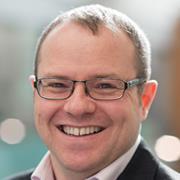
CESR Seminar: Benjamin Sovacool
January 21-22, 2021
Abstract: Researchers today need to secure funding, collaborate, share data, publish results, commercialize research, and demonstrate impact. Early career researchers in particular are faced with multiple pressures around these challenges. This presentation will help scholars, especially early career researchers, gain an understanding of how to design their research more effectively, and how to improve your chances to get your work published. Using examples from the energy and climate social sciences field, it will bring attention to the importance of clearly articulating research questions, objectives, and designs. It will provide a framework for conceptualizing novelty. It will suggest codes of practice to improve the quality and rigor of research. It will provide guidelines for improving the style and communication of results. It will lastly discuss what academic (and non-academic) impact are and propose ways to enhance it. In doing so, the presentation will give you first-hand insights into successful research methodologies, what journal editors (and reviewers) look for, as well as advice on how to successfully promote your work.
Topic: "Decarbonisation and its discontents: A critical justice perspective on four low-carbon transitions"
Abstract: What are the types of injustices associated with low-carbon transitions? Relatedly, in what ways do low-carbon transitions worsen social risks or vulnerabilities? Lastly, what policies might be deployed to make these transitions more just? The presentation answers these questions by first elaborating an “energy justice” framework consisting of four distinct dimensions—distributive justice (costs and benefits), procedural justice (due process), cosmopolitan justice (global externalities), and recognition justice (vulnerable groups). It then examines four European low-carbon transitions—nuclear power in France, smart meters in Great Britain, electric vehicles in Norway, and solar energy in Germany—through this critical justice lens. In doing so, it draws from original data collected from 64 semi-structured interviews with expert participants as well as five public focus groups and the monitoring of twelve internet forums. It documents 120 distinct energy injustices across these four transitions. It then explores two exceedingly vulnerable groups to European low-carbon transitions, those recycling electronic waste flows in Ghana, and those mining for cobalt in the Democratic Republic of the Congo. The presentation aims to show how when low-carbon transitions unfold, deeper injustices related to equity, distribution, and fairness invariably arise.
Biosketch: Dr. Benjamin K. Sovacool is Professor of Energy Policy at the Science Policy Research Unit (SPRU) at the University of Sussex Business School in the United Kingdom. There he serves as Director of the Sussex Energy Group. Professor Sovacool works as a researcher and consultant on issues pertaining to global energy policy and politics, energy security, energy justice, climate change mitigation, and climate change adaptation. More specifically, his research focuses on renewable energy and energy efficiency, the politics of large-scale energy infrastructure, designing public policy to improve energy security and access to electricity, the ethics of energy, and building adaptive capacity to the consequences of climate change.
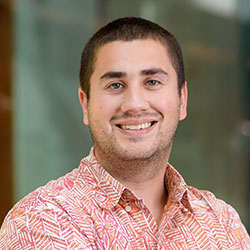
Josiah Hester
CESR and Department of Chemical and Biological Engineering Seminar
November 12, 2020 @ 1 pm
Batteries Not Included: Reimagining Computing for the Next Trillion Devices
For decades, smart device (i.e. wireless sensing and computing systems) have relied primarily on battery power. However, batteries are not a viable energy storage solution for the tiny devices at the edge of a sustainable Internet of Things. Batteries are expensive, bulky, hazardous, and wear out after a few years (even rechargeables). Replacing and disposing of billions or trillions of dead batteries per year would be expensive and irresponsible. By leaving the batteries behind and surviving off energy harvested from the environment, tiny intermittently powered sensors can monitor objects in hard to reach places maintenance free for decades. Batteryless sensing will revolutionize computing and open up new application domains from infrastructure monitoring and wildlife tracking to wearables, healthcare, and space exploration. However, these devices intermittent power supply make power failures the common case; requiring a rethinking of hardware and software design, tool creation, and evaluation techniques. In this talk, I will I will discuss the broad implications of what a battery-free, trillion device IoT means, outline previous work on the topic, and discuss late breaking devices and approaches to mobile computing such as soil powered sensors and the world’s first battery-free Nintendo Game Boy.
Josiah Hester is an Assistant Professor in the Departments of Electrical and Computer Engineering, and Computer Science at Northwestern University. Josiah joined Northwestern in Fall 2017 after completing his PhD in Computer Science at Clemson University. He works broadly in mobile and pervasive computing, i.e. the Internet-of-Things, wireless sensor networks, and embedded systems. He specifically investigates battery-free smart devices that harvest energy from ambient sources like the sun, human action, and wireless power. His work is involves the design of computer systems that are resilient to frequent and unpredictable power failures. He works towards a sustainable future for computing and applies these techniques to mobile healthcare, infrastructure monitoring, and conservation based applications. His work has received a Best Paper Award and Best Paper Nomination from ACM SenSys, two Best Poster Awards, and has been covered by the Wall Street Journal, The Verge, CNET, the BBC, and many others.

April 24, 2020
Evanston, IL
This past January, Northwestern, Argonne, and the University of Illinois proposed an AI for Sustainability center planning grant to the National Science Foundation. The proposal process created a series of ideas that we would like to pursue regardless of the proposal outcome. Central to those is to roadmap research needs in AI for Sustainability.
To this end, Bill Miller and Jennifer Dunn organized a half-day workshop on April 24 to begin the roadmapping process, and was co-sponsored by Northwestern’s Center for Engineering Sustainability and Resilience and the Northwestern-Argonne Institute for Science and Engineering.
The workshop attracted over 60 participants and featured Simge Küçükyavuz, Luís Amaral, and Aaron Packman as speakers in addition to Raj Sankaran and Prasanna Balaprakash of Argonne. Matt Turk of the University of Illinois also contributed a talk. Niraj Swami of The Nature Conservancy served as the keynote speaker. The workshop resulted in a synthesis of research needs and questions in topic areas including data needs, advances in AI to advance sustainability research, integrating human-based domain expertise into AI approaches, building trust with stakeholders, and communicating results to policy makers. We expect there will be follow on workshops to address several of these topics as CESR and NAISE collaborate towards developing a roadmap for AI for Sustainability. A two-page summary of the workshop is in the CESR library.
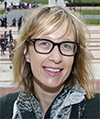
Kate Marvel, NASA GISS & Columbia University
Earth and Planetary Sciences seminar speaker, March 6th, 2020
Understanding Climate Change Past, Present, and Future: New Methods for Signal Detection and Attribution
How is climate change affecting aspects of the Earth system beyond global average temperature? And what can we expect in the future? Currently, the detection of a human fingerprint on many variables is complicated by several factors: methodological uncertainties, large internal variability, errors in the computer models used to estimate natural climate variability and future climate trajectories, and fundamentally unresolved science questions. In this talk, I’ll explain how new methods can help to identify clear signals amidst the noise. I’ll begin in the past, using tree-ring reconstructions of last-millennium hydroclimate to show that humans were very likely influencing global drought risk as early as the first half of the twentieth century. Moving to the present, I’ll show how improved fingerprinting techniques reveal a detectable human influence on global and regional precipitation patterns. I’ll end with a cautionary tale for the future, showing that estimates of future warming or “equilibrium climate sensitivity” inferred from recent observations are likely biased low, because the cloud changes we've experienced are not necessarily predictive or reflective of the cloud changes expected in the future. This means that conclusions inferred from past and present data cannot be simply extended to the future, but this improved understanding can help to narrow uncertainties in future climate projections.
Dr. Kate Marvel is an Associate Research Scientist at NASA Goddard Institute for Space Studies and Columbia University where she studies Earth’s climate system, forcings, and feedbacks. Her work is particularly adept at fingerprinting the causes of observed climatic change, and exploring the implications of these changes for the future. Kate is one of the world’s pre-eminent climate communicators – with regular pop-sci contributions to Scientific American, a much viewed and lauded TED main stage talk, and a massive social media following. She holds a B.A. in physics and astronomy from U.C. Berkeley and a PhD in theoretical physics from the University of Cambridge where she was a Gates Scholar and member of Trinity College. Prior to joining NASA GISS, Kate was a Postdoctoral Science Fellow at the Carnegie Institution for Science in the Department of Global Ecology at Stanford University and at the Lawrence Livermore National Laboratory.
Please e-mail earth@northwestern.edu if you have any questions.
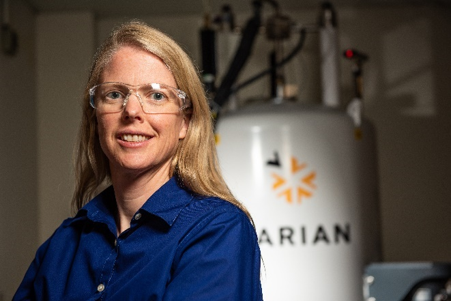
Dr. Wendy Shaw, Physical Sciences Division Director at PNNL
LEAP Center seminar speaker, March 5th, 2020
Using an Outer Coordination sphere with molecular catalysts to enhance small molecule conversions
Enzymes are capable of shuttling gases, protons and electrons with great speed and precision. Enzymes are also capable of very specifically controlling the local environment around the catalytic active site. Using the large range of functional groups available with the 20 naturally occurring amino acids, and the structural control of the protein architecture, precise placement of hydrophobic or hydrophilic groups is achieved which control the enzyme active site hydrophobicity, charge, steric accessibility and electronic character. Furthermore, enzymes are dynamic molecules that can control the desired environment by a subtle or significant change in structure. The superior rates and specificity of enzymes as compared to homogeneous catalysts demonstrate that the outer coordination sphere is as essential as the active site for efficient function.
Our program focuses on trying to capture these desirable enzymatic traits in homogeneous catalysts. Dynamics, active site environment and proton channels are the features of the OCS that are the focus of these studies. We are developing redox active catalysts which oxidize and produce H2 and also thermal catalysts for CO2 reduction. Our initial work in this area has focused on incorporating small peptides around the active site of functional molecular complexes to explore how the local environment can influence catalytic rates. Amino acids and peptides enhance activity, and importantly, provide a scaffold upon which a more complex outer coordination sphere can be designed and added. Our most current studies focus on creating artificial enzymes by immobilizing our complexes within a stable protein. We use a combination of computational and experimental approaches to understand the interactions controlling these complex systems. Combining these approaches allows us to explore and develop a mechanistic understanding of the role of the scaffold in both enzymes and molecular catalysts, allowing us to capture the essential features into homogeneous catalysts, with the potential of enhancing the rates, selectivity and specificity of the catalyst.
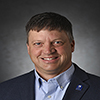
Chris Rahn, PhD , J. Lee Everett Professor and Associate Dean for Innovation, Penn State
Seminar speaker on March 2, 2020
Battery Systems Engineering Enabling Mobility and Grid Independence
Batteries enable mobile and un-plugged electronics with applications ranging from cell phones to solar homes. Batteries are being widely adopted to increase the efficiency and effectiveness of hybrid and electric vehicles, including electric aircraft. Cost and life of the energy storage system, however, are concerns that limit the desirability of battery powered devices. This seminar introduces the electrochemistry, dynamic modeling, and controls associated with the emerging field of battery systems engineering. The governing partial differential equations are derived, simplified, discretized, and reduced in order to develop efficient and accurate models that include important aging and thermal effects. Model-based state of charge and state of health algorithms are derived that predict the remaining charge and capacity evolution of a battery pack, respectively. Dynamic current limiters and thermal management algorithms are shown to maximize power and minimize degradation. New research directions in active safety and multifunctional battery systems are described.
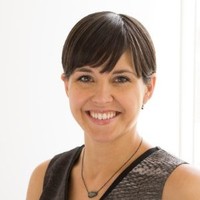
Alaina Harkness, Executive Director of Current
Seminar speaker, December 20th, 2019
Alaina Harkness, the new Executive Director at Current, brings a background in economic development. She was previously at the MacArthur Foundation, where she was involved in providing early financial support for the Array of Things project. Alaina has been at Current since September 2019 and is still working to connect with potential partners. Alaina would like to meet and develop collaborations with NU faculty doing research broadly related to water.
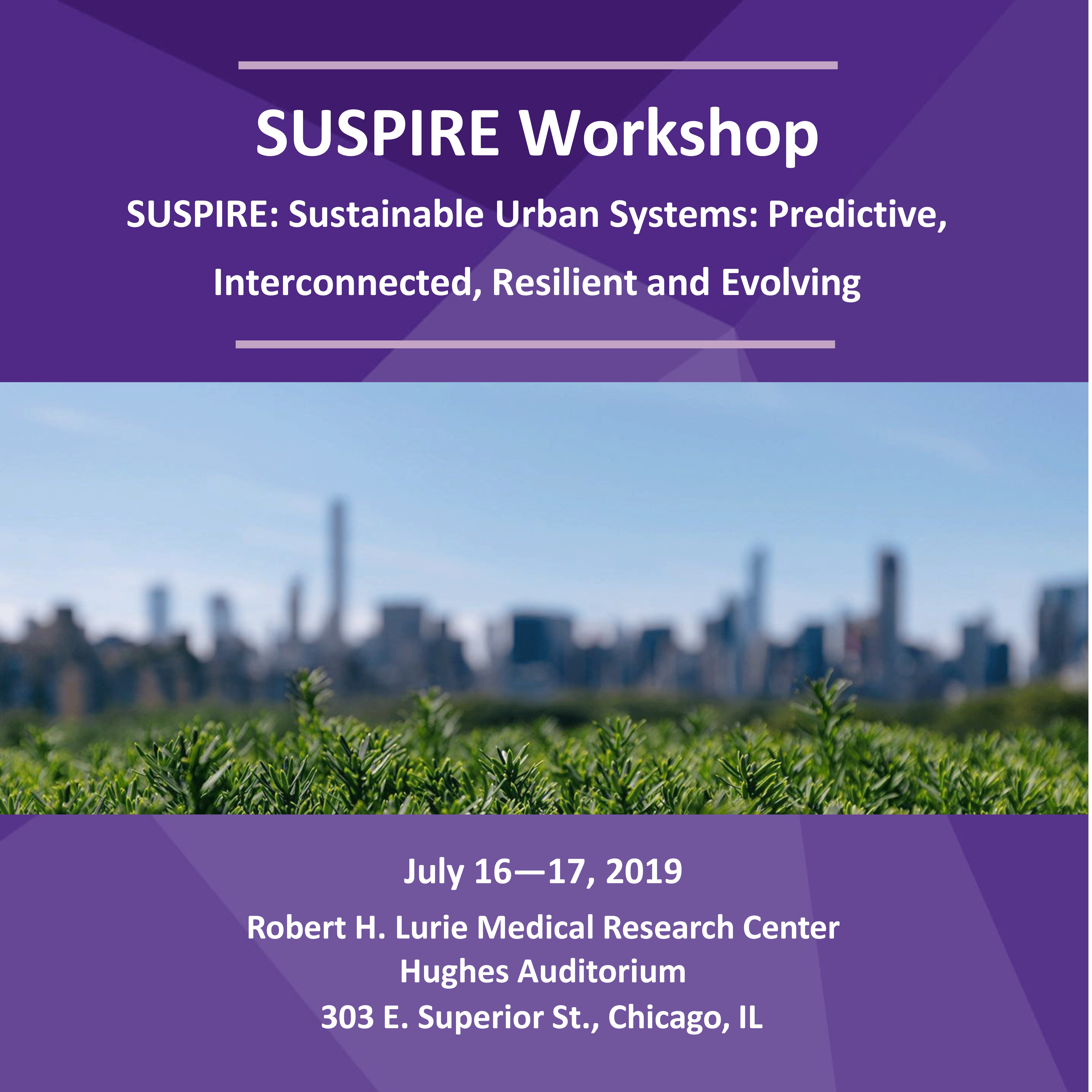
SUSPIRE Workshop
SUSPIRE workshop was held July 16th and 17th, 2019, on Northwestern's Chicago campus. This workshop was organized by Northwestern University, Argonne National Laboratory, the University of Chicago, Illinois CURES, and many other partners with support from the National Science Foundation.
